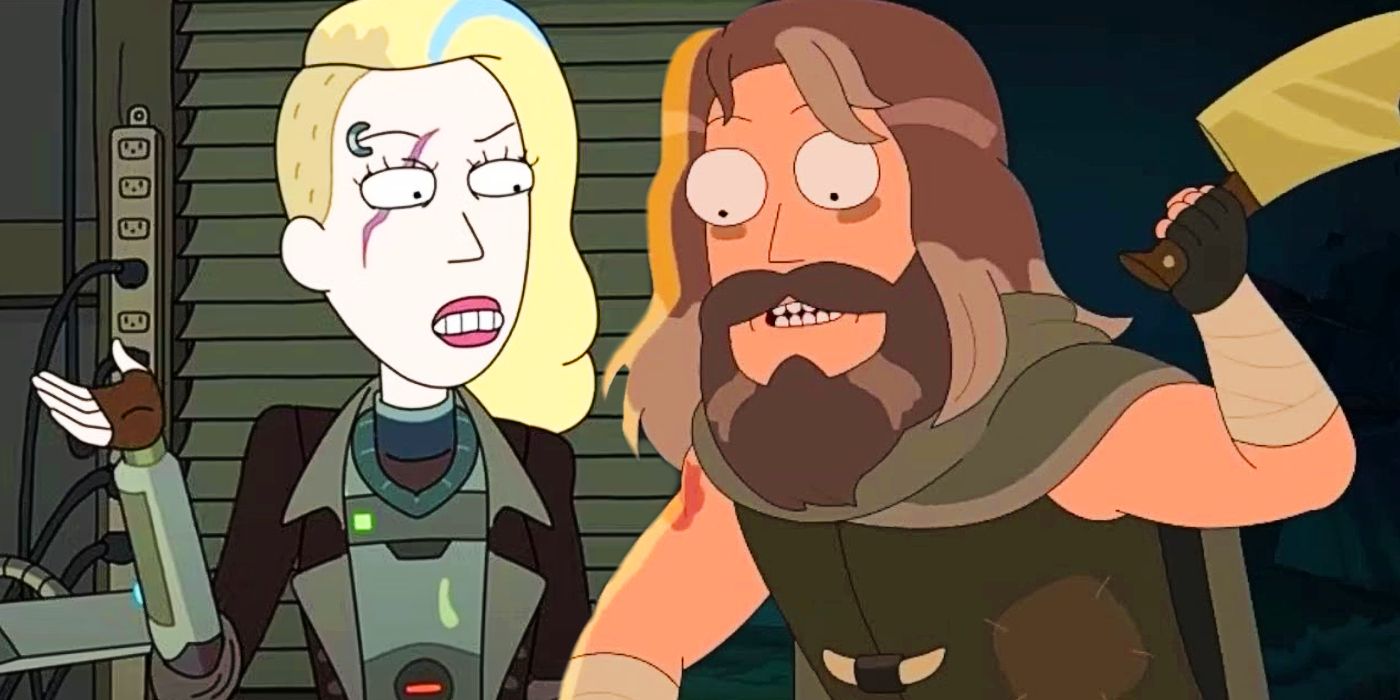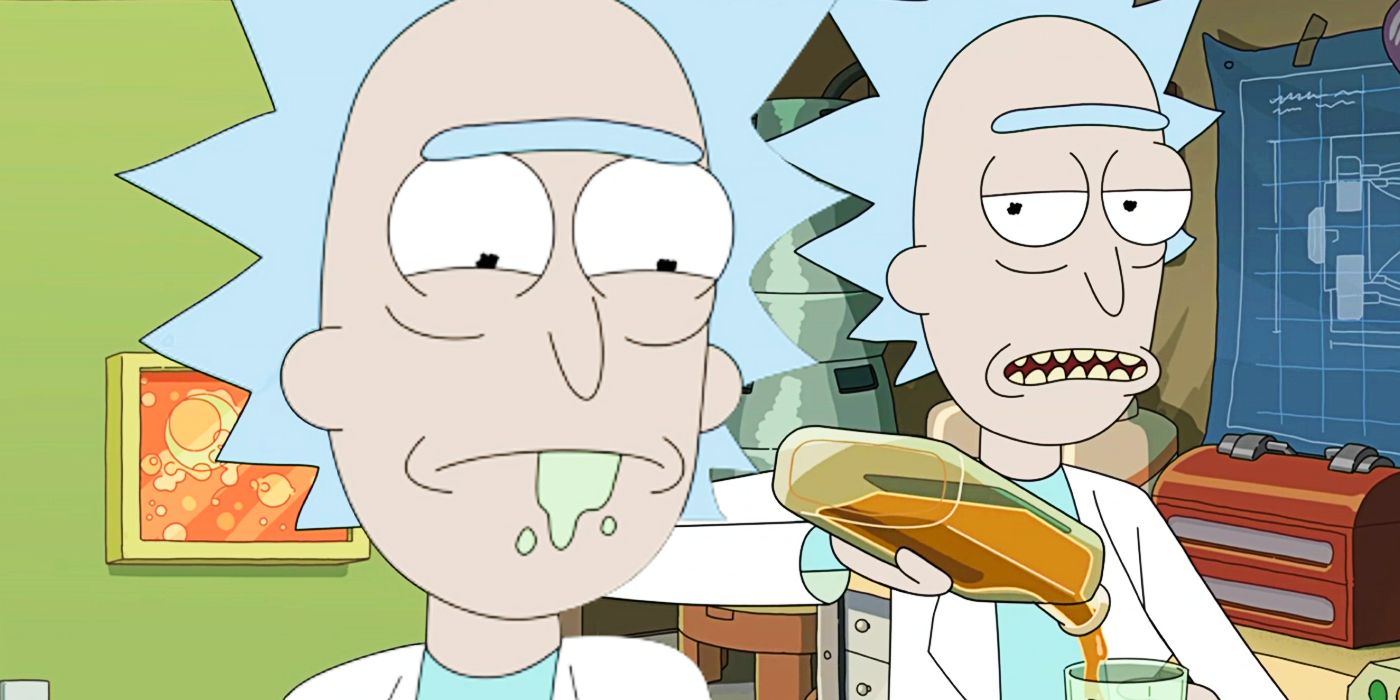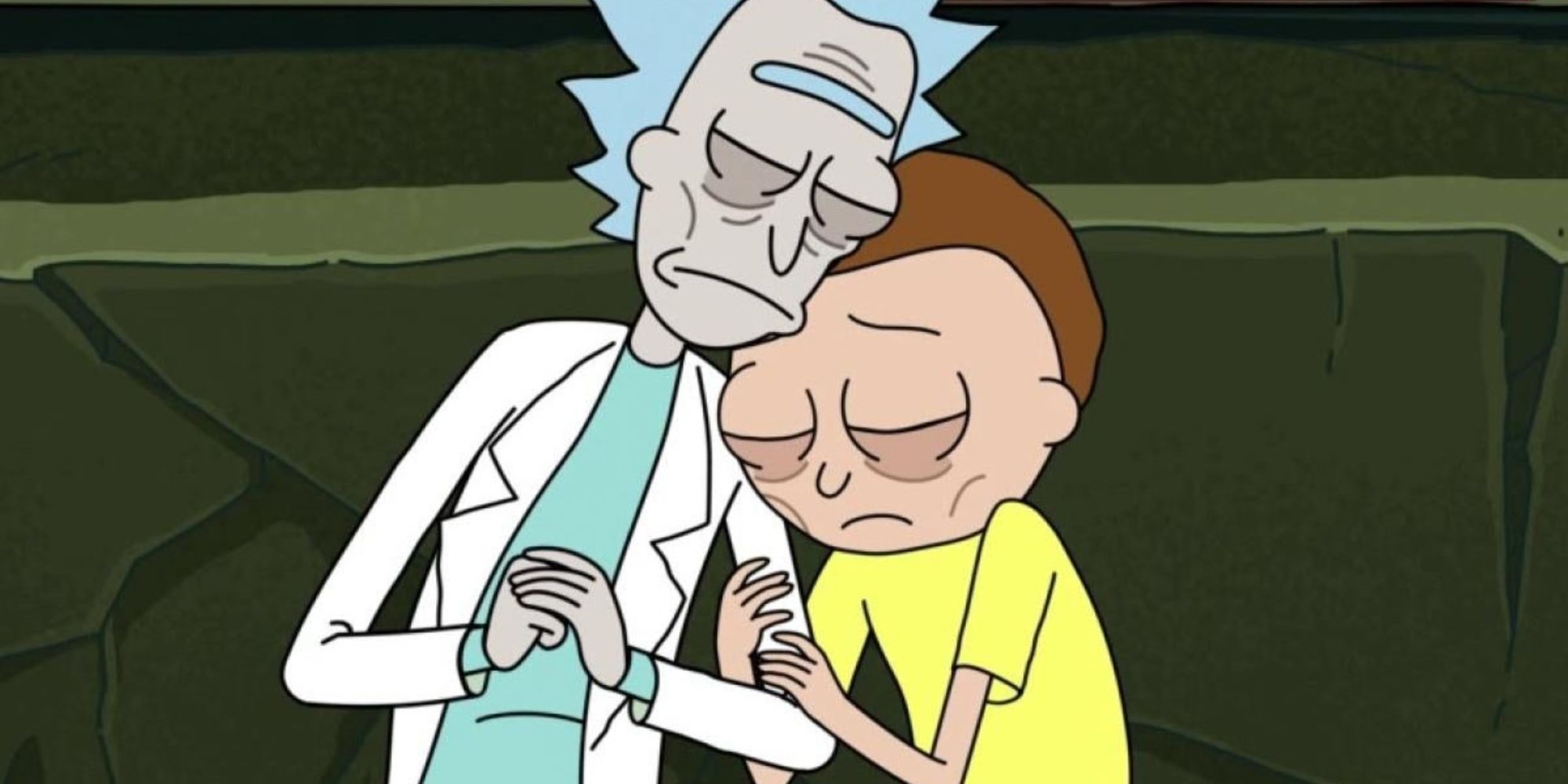The depiction of Jerry’s post-apocalyptic self, Space Beth’s argument with Beth, and the episode’s biggest twist all prove that the Rick & Morty season 6 premiere has a complicated relationship with the show’s old idea of “cool.” The early seasons of Rick & Morty were not overly concerned with morality. There were a handful of episodes that saw Rick get all teary-eyed up and momentarily shed his smug exterior to reveal a tortured super-genius beneath, but there weren’t a lot of scenes where the titular mad scientist committed to taking stock, becoming more responsible, and trying to grow into a better person.
This gradually changed in later seasons of Rick & Morty as the show became less invested in cartoony adventures and more interested in the growth and development of its characters. The power imbalance present between Rick and Morty since the pilot was deconstructed throughout Rick & Morty seasons 4 and 5 as the ugliness underpinning Rick’s slick hyper-intelligence became more apparent. By the end of Rick & Morty season 4, Rick’s status as the smartest, coolest super-genius alive didn’t hide the fact that he was despised by his own family and the character was forced to face the consequences of his actions throughout Rick & Morty season 5.
Now, Rick & Morty’s “Solaricks” (season 6, episode 1) proves that season 5 was only the beginning of Rick and Morty's characters reckoning with the consequences of what the show once considered cool. The original universe twist that the more competent, tougher Cronenberged Jerry lost his wife and child to an unforgiving post-apocalyptic wasteland, only to then die at the hands of Rick, proves that Rick & Morty’s idea of a hero has seen real growth in the intervening years. Meanwhile, Rick & Morty season 6’s focus on the Smith family working together shows how much the series had left Rick’s status as a lone wolf behind, allowing the character to open up to those around him as his amoral, uber-competent original self becomes the villain of Rick & Morty season 6.
Rick & Morty Season 1’s Idea of “Cool”
In Rick & Morty season 1, the morality of the show was a lot simpler. Rick, the unhinged super-genius who used his grandson to complete amoral missions for his own ends, was cool. The only way a weak-willed pushover like Jerry could hope to become cool was via a cataclysmic event that turned him into a cold-blooded killer. The Cronenberged world turned Jerry into a Mad Max-influenced action hero, this single-handedly saved his relationship with Beth and earned him Summer’s respect because being perceived as tough was the only thing holding Jerry back, and this was a comparatively happy ending for Rick and Morty season 1 in “Rick Potion #9”. Rick & Morty season 6, however, took this idea apart by reuniting the original Rick and Jerry.
How Rick & Morty Season 6 Deconstructed Season 1
In Rick & Morty season 1, Jerry becoming a hardened survivalist was seen as a good thing, proof that the character could be cool and heroic in the right circumstances. In Rick & Morty season 6, Jerry points out that being seen as “cool” by his son cost him everything and was ultimately worthless, with Jerry bitterly asking whether Beth and Summer’s deaths were worth his son’s respect. This idea was underlined further when Rick Prime killed this version of Jerry with no apparent effort in the episode’s stinger. All that his years of survival did was make Jerry tougher, less caring, and more cynical by the time of Rick and Morty season 6 - none of which protected him when an even tougher, less caring, and more cynical character killed him without a second thought. As if to prove this point, this version of Jerry was willing to abandon his son in the inhospitable Croenenberged wilderness and ended up paying dearly for this decision, while the less traditionally tough or cool Morty heroically opted to save Rick from Evil Morty in Rick & Morty’s season 5 finale.
Space Beth Vs Beth Addressed Rick & Morty's Old Theme
The idea that Rick & Morty’s old conception of coolness and heroism was mostly just emotional distance was reaffirmed by Summer’s admission that she only finds Space Beth cool because she’s a rarely-encountered novelty. The fact that Summer had to intervene and save both versions of her mother proved (like Rick Prime killing the tougher Jerry), that Rick & Morty’s old conception of heroic toughness didn’t provide a particularly useful skill set. Rick and Morty's Space Beth seems tougher and more competent than "Domestic" Beth (as Summer named her), but both characters ended up semi-digested by a space worm thanks to a petty argument distracting them.
How Rick & Morty Changed Its Idea of Heroism
Perhaps the most notable refutation of Rick & Morty’'s old idea of cool is seen in the character of Rick Prime. Where Rick & Morty's “villain” Evil Morty was revealed to be a well-intentioned extremist who wanted to stop endless Ricks from ruthlessly exploiting endless Mortys across endless realities, Rick Prime is a much more unambiguously evil figure who revels in his power and appears to taunt, torture and kill his enemies for no reason at all. The fact that the original super-genius Rick is revealed to be the Rick who murdered his family shows that Rick & Morty season 6 has fully moved on from its season 1 conception of heroism. The same things that made the amoral cynic so unstoppable and easy to root for in Rick & Morty season 1 (his irreverent attitude toward death and destruction, his hyper-competence, his uncaring affect) are now seen as character flaws that make him a monstrous villain willing to kill anyone for no reason.
Where most evil Superman stories like Brightburn fail because they don’t address what makes super-competent heroes so satisfying to root for in the first place, Rick & Morty season 6 succeeded precisely because the original Rick was such a fun lead character. In Rick & Morty season 1, Rick’s callous disregard for the feelings, belongings, and lives of others made him charming and the effortless ease with which he dispatched anyone who inconvenienced him made him an unstoppable force. In Rick & Morty season 6, Rick’s gradually growing humanity and empathy make him an appealing antihero, while Rick Prime uses the same qualities that once made Rick seem so cool to turn the character into a brutal, inhuman villain.





.jpg)